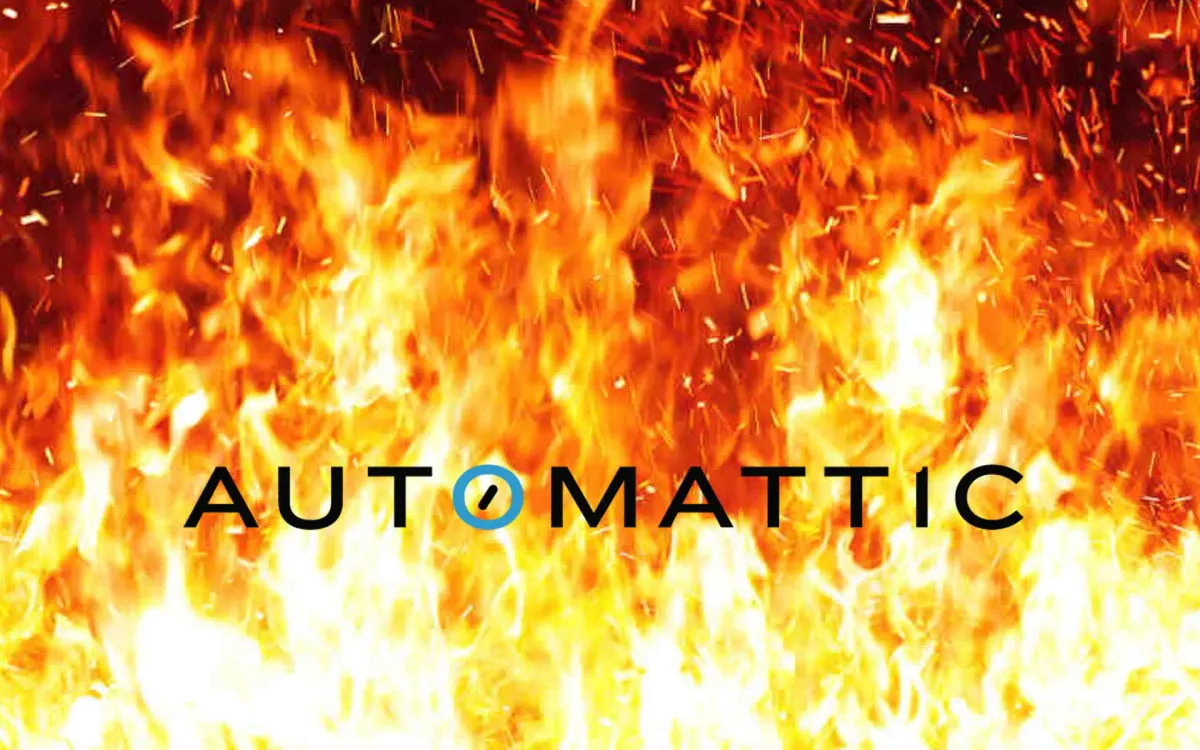
On September 20, 2024, WordPress co-founder Matt Mullenweg delivered a controversial keynote address at WordCamp US in San Diego, criticizing web hosting company WP Engine for allegedly not contributing enough to the WordPress open-source project. This event, which occurred four days ago, has now escalated into a legal confrontation between the parties involved.
WordCamp US, the largest annual gathering for the WordPress community in North America, ran from September 19-21, 2024. The conference, which typically celebrates WordPress's growth and future plans, took an unexpected turn during Mullenweg's closing keynote.
According to attendees, Mullenweg began his presentation by reading a blog post he had published earlier titled WordCamp US & Ecosystem Thinking. He then introduced a new section called How Private Equity Can Hollow Out and Destroy Open Source Communities, where he specifically called out WP Engine and its private equity backer, Silver Lake Capital.
Mullenweg claimed that WP Engine, one of the largest WordPress hosting providers, was not contributing enough resources to WordPress core development despite generating significant revenue from the platform. He stated, "Imagine you're running a company and that some of your budget goes to R&D, and then how great it would be if you could get all of the software for free, don't spend a single dollar on it, or spend 40 hours a week, call that $100,000 a year, and you can make $450,000,000 per year off it, that'd be pretty sweet right?"
The WordPress co-founder suggested that WP Engine's practices were harming companies like his own, Automattic, which he says invests heavily in WordPress development. "Now those companies are fighting with one hand tied behind their back," Mullenweg stated.
These comments were particularly striking given that WP Engine was a "Super Admin" level sponsor of WordCamp US, having paid $75,000 for prominent placement at the event. Mullenweg even suggested that this might be the last WordCamp where WP Engine would be present.
On September 22, 2024, two days after the keynote, Mullenweg published a follow-up post on the official WordPress.org blog titled WP Engine is not WordPress. In this post, he provided a specific technical example of how he believes WP Engine is compromising the WordPress user experience to cut costs. Mullenweg claimed that WP Engine disables WordPress's built-in revision system by default, which he argues is a core feature for protecting user content.
The controversy has sparked intense debate within the WordPress community about the responsibilities of companies that profit from free, open-source software. Supporters of Mullenweg argue that his concerns about the sustainability of open source projects are valid, while critics suggest that his approach was inappropriate for a keynote speech at a community event.
On September 23, 2024, the situation escalated further when Quinn Emanuel, a law firm representing WP Engine, sent a cease-and-desist letter to Automattic. The letter, addressed to Holly Hogan, Chief Legal Officer of Automattic, demands that Automattic and Mullenweg immediately cease making false factual statements about WP Engine, interfering with WP Engine's contractual relationships with its employees and customers, and preserve all potentially relevant documents and data related to the dispute.
The letter reveals that in the days leading up to Mullenweg's keynote, there were behind-the-scenes negotiations between Automattic and WP Engine. According to the letter, Automattic CFO Mark Davies told a WP Engine board member that Automattic would "go to war" if WP Engine did not agree to pay a significant percentage of its gross revenues to Automattic, ostensibly for a "license" to use certain trademarks like WordPress.
The letter also states that Mullenweg sent a series of text messages to WP Engine's board member and CEO, threatening to go "nuclear" on WP Engine if they did not agree to pay before his keynote address. These demands were allegedly accompanied by threats to smear WP Engine's name, disparage its directors and corporate officers, and ban WP Engine from WordPress community events.
In response to these allegations, Mullenweg posted a comment on social media platform Reddit, confirming that legal action has been taken. He stated, "WP Engine has now filed formal legal action against WordPress.org, myself, Automattic, and we are doing the same against them, so I may not be able to comment on this too much in the future."
This legal confrontation raises several important questions for the WordPress community and the broader open-source software ecosystem:
- How should contributions to open-source projects be measured and recognized?
- What responsibilities do companies have when they profit from free, open-source software?
- How can open-source projects ensure their long-term sustainability while maintaining an open ecosystem?
- What are the implications of having a for-profit company (Automattic) closely tied to an open-source project (WordPress)?
As the WordPress project powers over 40% of websites globally, the outcome of this dispute could have far-reaching consequences for the future of open-source software development and the web hosting industry.
Key facts
- WordCamp US 2024 took place from September 19-21 in San Diego.
- Matt Mullenweg delivered the closing keynote on September 20, 2024.
- WP Engine was a "Super Admin" sponsor of the event, contributing $75,000.
- Mullenweg accused WP Engine of not adequately contributing to WordPress development.
- WP Engine claims to contribute 40 hours per week to the WordPress project.
- Legal action has been initiated by both WP Engine and Automattic.
- The WordPress open-source project powers over 40% of websites globally.

